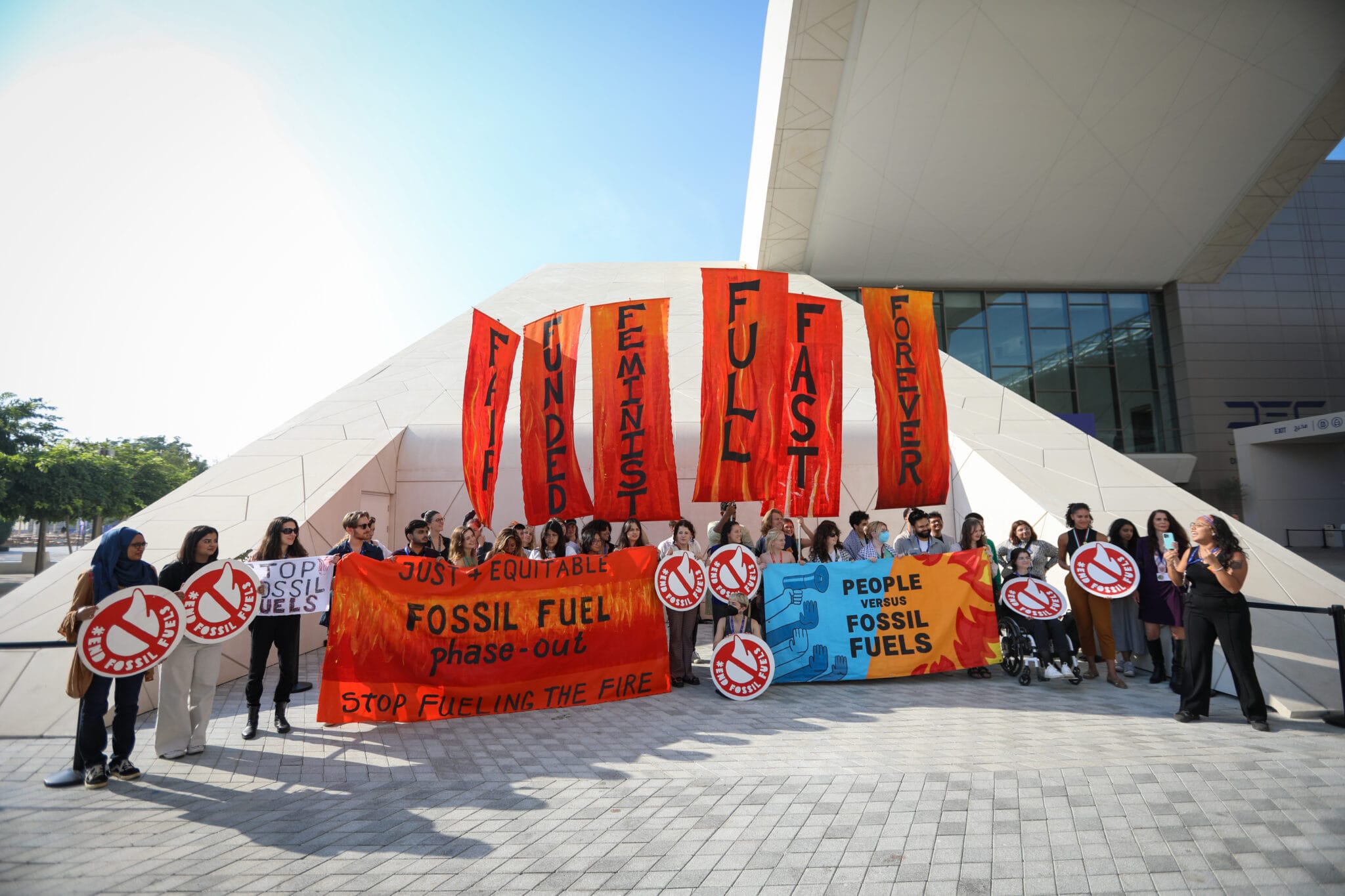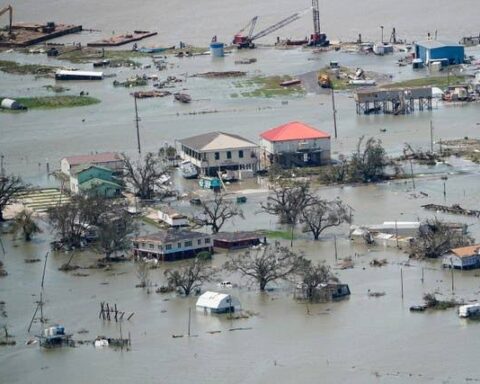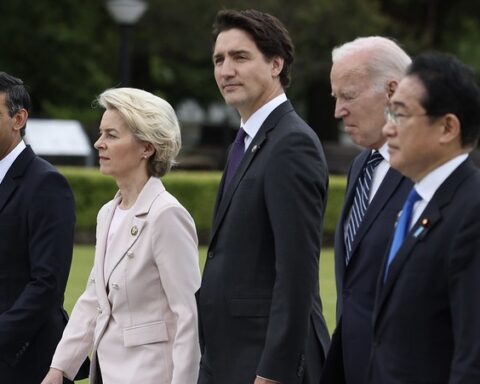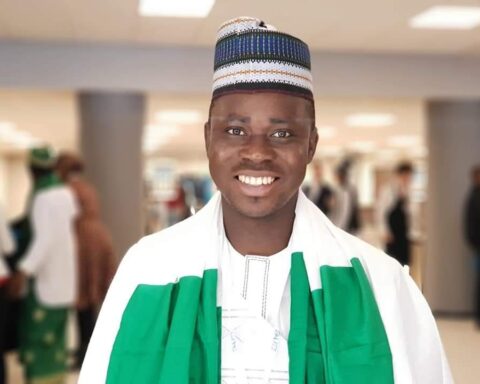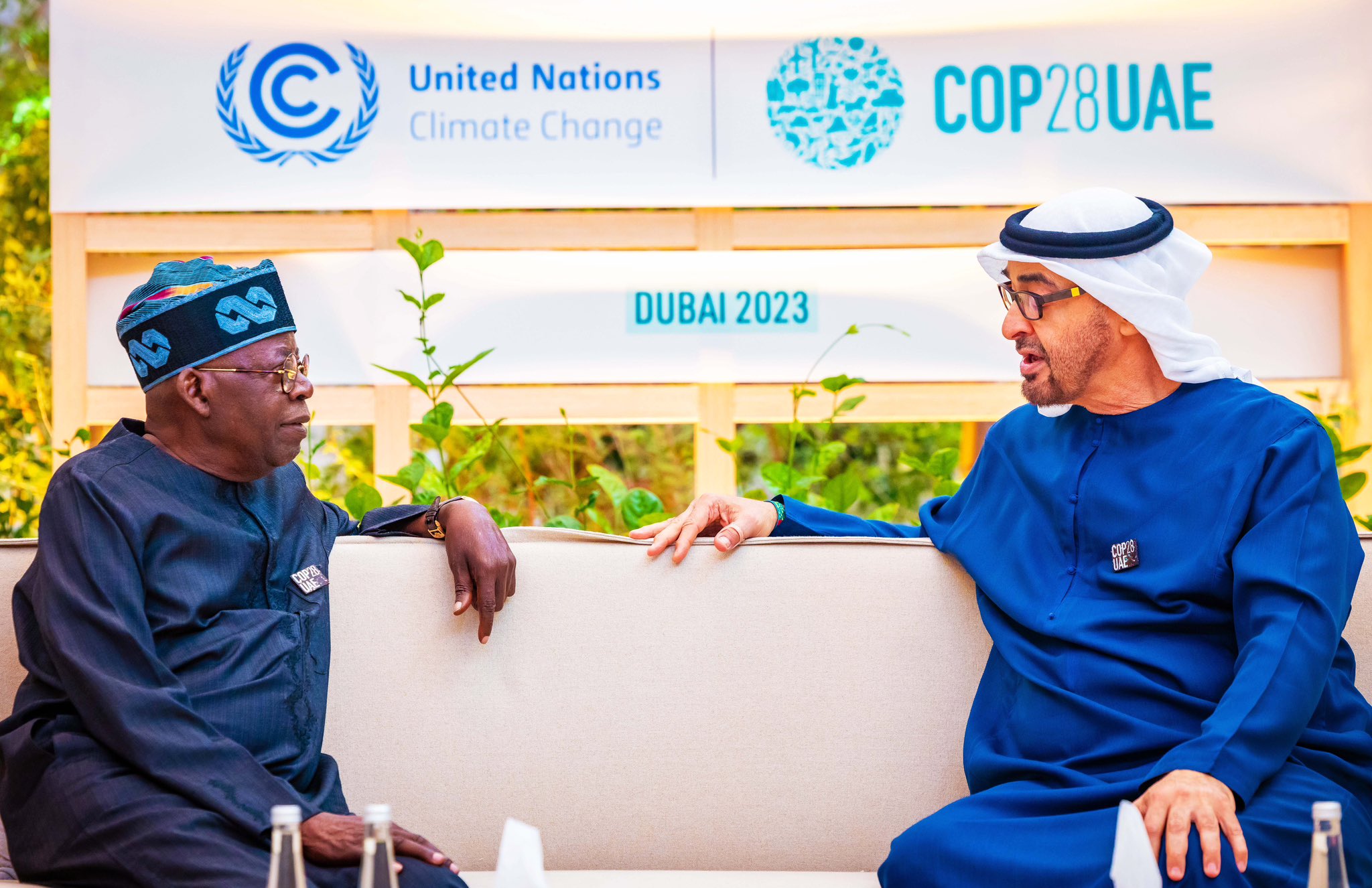Is the COP 28 agreement “a historic deal that will spell the eventual end of fossil fuels?” the Guardian’s Fiona Harvey asked. “Or will it be one more step on the road to hell?”
The answer, Harvey astutely suggested, could well be both. The tension between those two outcomes is something journalists need to understand, scrutinize, and make clear to our audiences going forward. Our coverage needs to embrace the duality long at the heart of international climate negotiations: what science says that humanity must do to avoid climate breakdown, versus what our political and economic systems want to do.
Although COP28’s final text did not endorse the phase-out of fossil fuels that science says is necessary, its call for “transitioning away” from fossil fuels is undeniably historic. “[T]his result would have been unheard of two years ago, especially at a COP meeting in a petrostate,” said Mohammed Adow of Climate Shift Africa, a leading voice of developing countries. “It shows that even oil and gas producers can see we’re heading for a fossil-free world.”
Advocates of climate action hope that the unprecedented call to leave fossil fuels behind will persuade government officials and private investors around the world that, as UN Secretary-General António Guterres told fossil fuel backers, “whether you like it or not, a fossil fuel phase-out is inevitable.”
In 2015, the Paris Agreement’s surprise endorsement of a 1.5-degrees-C temperature rise target sent a similar message, which led governments and financiers over the past eight years to increasingly abandon coal as a money-loser in favor of wind, solar, and energy efficiency.
Now, Jennifer Morgan, the German government’s climate envoy, said that COP28’s signals “are clear: If you are an investor, the future is renewable. Fossil fuels are stranded assets.”
The crucial question, as always with the climate emergency, is how fast a fossil fuel phase-out happens. The Paris Agreement did help bend the curve — instead of heading for a 4-degree-C future, we’re now on track for roughly 2.5 degrees C — but even 2.5 degrees C would bring utter catastrophe, and global emissions are still not falling. Until fossil fuels are phased out, “the world will continue to become a more dangerous, more expensive, and more uncertain place to live,” said Dr. Friederike Otto, the co-founder of World Weather Attribution.
Nevertheless, it’s a measure of how profoundly the political terrain has shifted that petrostates at COP28 were forced to talk about something they had kept off the agenda throughout the 31 years since the UN Earth Summit in 1992: phasing out fossil fuels. This shift in terrain opens up a host of fresh angles for journalists.
We should be pressing government and corporate leaders on how fast they will phase out fossil fuels, why they continue (so far) to back massive taxpayer subsidies for fossil fuels, and when rich countries will finally provide the financial aid they are legally obligated to give poor countries so the latter can leave fossil fuels behind as well.
Pursuing such stories will help journalists highlight the many shortcomings in the COP28 agreement. Both climate finance and climate adaptation were sidelined in the final text, a huge problem on both moral and practical grounds, and the newly established loss and damage facility remains scantily funded.
Unless poor countries get the money needed to go green, their future fossil fuel emissions will worsen climate impacts that endanger rich and poor alike. Without many billions of additional dollars to help vulnerable communities boost their resilience to the extreme heat, storms, drought, and rising seas that rich countries’ emissions have caused, countless people will suffer and die.
Yes, Dubai made history, but it’s a complex history: a success and a failure all in one. Now, as the negotiators, activists, scientists, and fossil fuel lobbyists head home, our work as journalists has only begun.
covering climate now


